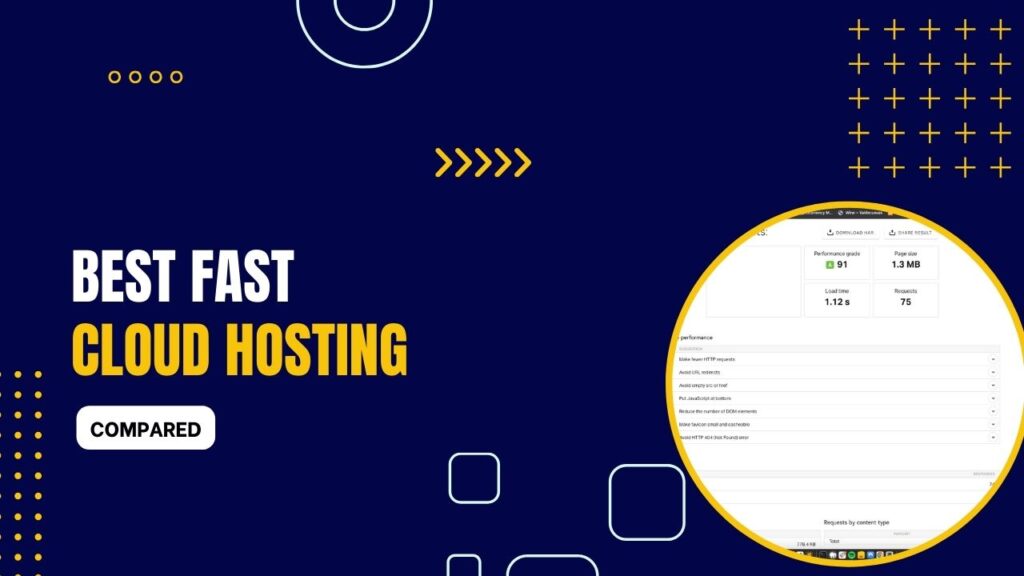
Cloud Hosting Providers Comparison: Which One is Best for Your Business?
Outline
- Introduction
- What is Cloud Hosting?
- Importance of Choosing the Right Cloud Hosting Provider
- Key Factors to Consider in a Cloud Hosting Provider
- H1: Cloud Hosting vs. Traditional Hosting
- H2: Performance and Scalability
- H2: Cost Efficiency
- H2: Flexibility and Control
- H1: Top Cloud Hosting Providers of 2024
- H2: Amazon Web Services (AWS)
- H2: Microsoft Azure
- H2: Google Cloud Platform (GCP)
- H2: DigitalOcean
- H2: Vultr
- H2: Linode
- H1: In-depth Comparison of Cloud Hosting Providers
- H2: Performance and Speed
- H2: Pricing Plans and Affordability
- H2: Security and Compliance
- H2: Customer Support and Service Level Agreements (SLAs)
- H2: Ease of Use and Developer Tools
- H1: Unique Features of Each Cloud Hosting Provider
- H2: AWS: Global Reach and Advanced Solutions
- H2: Azure: Seamless Integration with Microsoft Products
- H2: GCP: Focus on AI and Big Data
- H2: DigitalOcean: Simplicity for Developers
- H2: Vultr: Performance-Oriented Solutions
- H2: Linode: Budget-Friendly and Developer-Centric
- H1: Best Cloud Hosting Providers for Specific Use Cases
- H2: For Large Enterprises
- H2: For Startups and Developers
- H2: For eCommerce Websites
- H2: For AI and Data-Intensive Applications
- H1: The Future of Cloud Hosting
- H2: Emerging Trends in Cloud Computing
- H2: Cloud Hosting and Sustainability
- H2: Predictions for Cloud Hosting in 2025 and Beyond
- H1: Conclusion
- H1: FAQs
- H2: How do I choose the right cloud hosting provider?
- H2: What are the key benefits of cloud hosting over traditional hosting?
- H2: Are there free cloud hosting services available?
- H2: How secure is cloud hosting?
- H2: Can I switch between cloud hosting providers easily?
Introduction
In today’s digital age, the demand for reliable, scalable, and high-performance hosting is more critical than ever. As businesses move online and embrace the cloud, choosing the right cloud hosting provider can make or break your web presence. Whether you’re a small startup or a global enterprise, understanding the key differences between cloud hosting providers is essential to ensuring that your website or application runs smoothly, efficiently, and securely.
In this article, we’ll provide a comprehensive comparison of cloud hosting providers, breaking down their features, pricing, performance, and more. Whether you’re looking for the power of Amazon Web Services (AWS), the seamless integration of Microsoft Azure, or the simplicity of DigitalOcean, we’ve got you covered.
Cloud Hosting vs. Traditional Hosting
Performance and Scalability
One of the primary advantages of cloud hosting is its ability to scale dynamically based on your website’s needs. Unlike traditional hosting, which relies on a single physical server, cloud hosting distributes your data across multiple servers in various locations. This means your site will handle sudden traffic spikes more efficiently, ensuring optimal performance at all times.
Cost Efficiency
Traditional hosting often involves paying a fixed fee, regardless of how much or how little of the server’s resources you use. Cloud hosting, on the other hand, is typically billed based on usage. This pay-as-you-go model allows businesses to scale their infrastructure without incurring unnecessary costs.
Flexibility and Control
Cloud hosting providers offer a higher degree of flexibility, allowing users to configure their hosting environment according to their specific needs. Whether you need to install custom software, tweak settings, or manage resources, cloud hosting platforms give you full control over your infrastructure.
Top Cloud Hosting Providers of 2024
Amazon Web Services (AWS)
AWS is the most popular and widely used cloud hosting provider globally. It offers an extensive range of services, from basic website hosting to advanced machine learning and big data solutions. AWS’s global network of data centers ensures fast and reliable performance.
Microsoft Azure
Microsoft Azure is a strong contender in the cloud hosting space, particularly for businesses already using Microsoft products like Office 365 or Windows Server. Azure provides excellent integration with Microsoft’s ecosystem, making it an ideal choice for enterprise-level applications.
Google Cloud Platform (GCP)
GCP stands out for its focus on artificial intelligence, machine learning, and big data processing. Google’s infrastructure is built to support large-scale applications, making it a great choice for businesses looking to leverage cutting-edge technologies.
DigitalOcean
DigitalOcean is a favorite among developers and small businesses due to its simplicity and affordability. It offers cloud servers with straightforward pricing and easy-to-use tools, making it ideal for startups and developers who want to get up and running quickly.
Vultr
Vultr is known for its high-performance cloud solutions with a focus on speed and reliability. It offers a variety of plans to suit different needs, including high-frequency compute instances for demanding applications.
Linode
Linode is another popular option for developers seeking a cost-effective cloud hosting solution. Linode’s plans are affordable, and its platform is easy to use, making it a strong competitor in the budget cloud hosting space.
In-depth Comparison of Cloud Hosting Providers
Performance and Speed
When it comes to speed, AWS, GCP, and Azure lead the pack with their globally distributed data centers and high-performance infrastructure. For smaller-scale applications, DigitalOcean, Vultr, and Linode also offer excellent performance, especially for their price points.
Pricing Plans and Affordability
- AWS: Pay-as-you-go pricing can be more expensive for smaller users, but it scales well for enterprises.
- Azure: Similar to AWS, Azure offers flexible pricing, though it can be complex to navigate for smaller businesses.
- GCP: Google offers competitive pricing, particularly for big data and machine learning applications.
- DigitalOcean: Starts at $5 per month, making it one of the most affordable options for developers.
- Vultr: Pricing starts at $2.50 per month, with high-performance options available at competitive rates.
- Linode: Known for its budget-friendly pricing, starting at $5 per month, with great value for developers.
Security and Compliance
All major cloud hosting providers, including AWS, Azure, and GCP, offer top-notch security features like encryption, firewalls, and compliance with industry standards such as GDPR and HIPAA. Smaller providers like DigitalOcean, Vultr, and Linode also offer robust security features but may not have the same level of compliance certifications.
Customer Support and SLAs
- AWS: Offers 24/7 customer support with various paid support tiers.
- Azure: Provides a comprehensive support plan, but it’s best for enterprise customers.
- GCP: Offers solid support, especially for AI and big data customers.
- DigitalOcean: Known for its active developer community and responsive support.
- Vultr: Provides 24/7 support with a focus on performance.
- Linode: Offers excellent customer support, particularly for developers.
Ease of Use and Developer Tools
While AWS, Azure, and GCP offer a broad range of services and features, they can be overwhelming for beginners. DigitalOcean, Vultr, and Linode, on the other hand, focus on simplicity and are more developer-friendly, with intuitive dashboards and straightforward setup processes.
Unique Features of Each Cloud Hosting Provider
AWS: Global Reach and Advanced Solutions
AWS offers unmatched global reach with data centers in over 245 locations worldwide. Its advanced tools, such as AWS Lambda and Elastic Beanstalk, allow businesses to build scalable applications without worrying about infrastructure.
Azure: Seamless Integration with Microsoft Products
Azure’s strength lies in its seamless integration with Microsoft products, making it a go-to choice for businesses using Office 365, Windows Server, or Active Directory.
GCP: Focus on AI and Big Data
Google Cloud Platform excels in AI and big data, offering tools like TensorFlow and BigQuery to help businesses harness the power of machine learning and data analytics.
DigitalOcean: Simplicity for Developers
DigitalOcean is designed for simplicity, offering pre-configured one-click apps and easy-to-deploy cloud servers. It’s perfect for developers who need to focus on coding without worrying about infrastructure management.
Vultr: Performance-Oriented Solutions
Vultr’s high-frequency compute instances are ideal for applications requiring maximum performance, such as gaming servers or data-intensive applications.
Linode: Budget-Friendly and Developer-Centric
Linode is a great choice for developers on a budget. It offers affordable pricing and a developer-centric platform, making it easy to deploy and manage cloud servers.
Best Cloud Hosting Providers for Specific Use Cases
For Large Enterprises
AWS and Azure are the top choices for large enterprises due to
